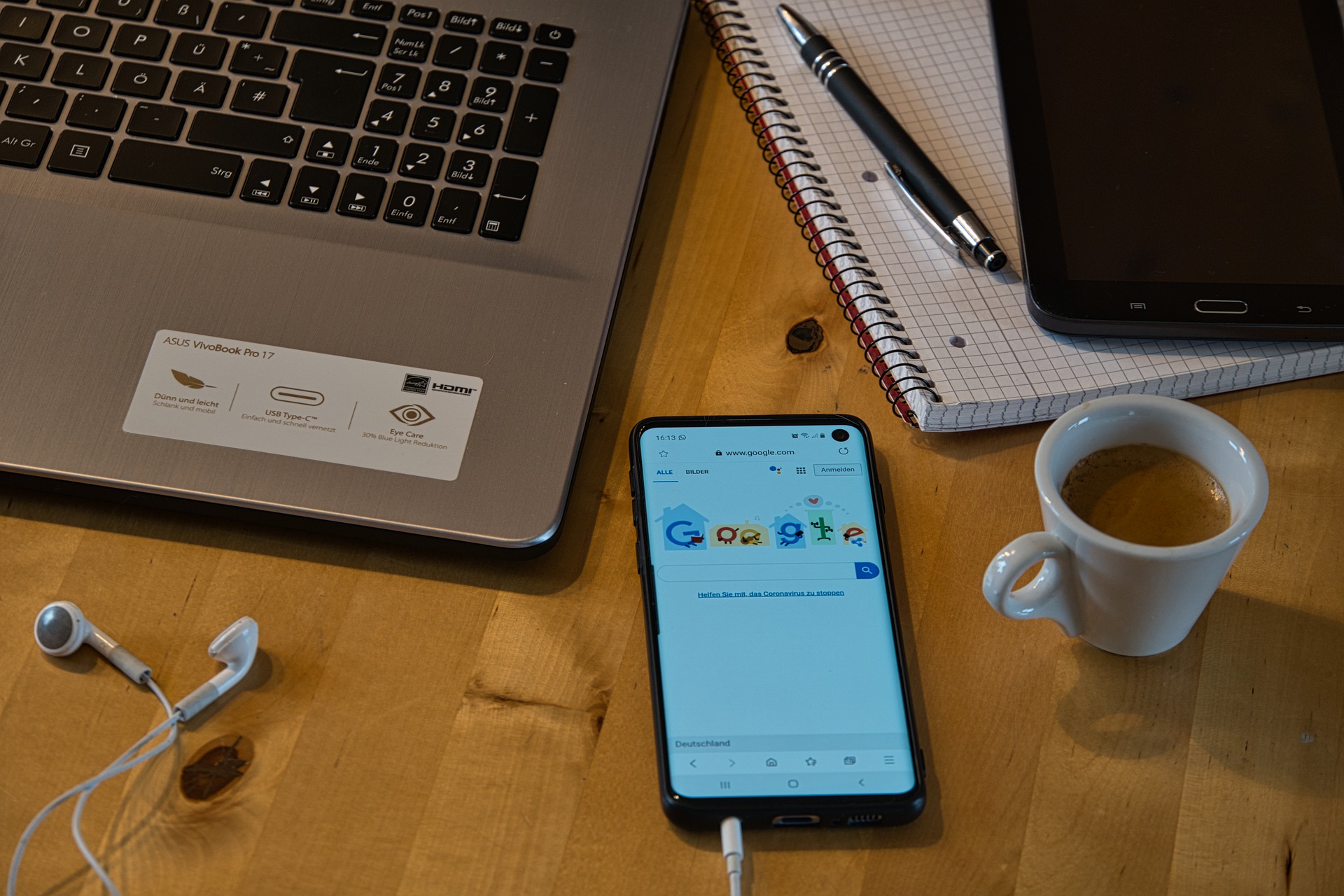How to relieve work stress during the corona crisis?
Many recommendations have come along from the UM board on improving your working conditions while working at home, the importance of a good lifestyle and the new rules and regulations for different employee groups. What not yet been addressed, is the worsening of our psychosocial working conditions and how we can positively affect these when we all work from home.
The problem: higher demands and diminished resources
The crisis causes imbalance between our job demands and job resources, a major cause of stress symptoms, such as fatigue, headache, low back pain, irritability, sleep problems etc. These symptoms of job stess increase sickness due to infections. When they last for months, they lead to burn-out, low back pain, complaints of arm, neck and shoulder, and cardiac morbidity.
The corona crisis has increased work demands for scientific staff at Maastricht University in many ways. We all have to learn new online and communication skills under time pressure. The strict deadlines for the online education add to the job demands. An urgency to establish new research on the corona crisis and to redirect existing projects is felt. Moreover, the intelligent lock down introduces new private life stressors: educating your children, worries about the care for your elderly parents, conflicts about how to share limited time and space at home, suffering from loneliness etc.
Negative health effects of increased job demands can be buffered by increasing job resources. However, our job resources diminish as well: less autonomy due to the intertwining of work and private duties, less feedback, less compliments, less visible results, less social support and a lack of feeling connected to one’s team, department or research group. Particularly the combination of increased efforts and reduced rewards (positive feedback, compliments, visible results) leads to adverse health effects.
Increase autonomy, feedback and connection to others
The Self-determination theory (SDT) can help to increase our resources during this crisis. According to SDT, workplaces should address three psychological needs to achieve healthy and productive functioning: autonomy (i.e. feeling in control), competence (i.e. feeling effective), and relatedness (i.e. feeling appreciated and cared for). Based on research and practical experience, recommendations can be formulated to face the current situation.
First, use all the autonomy that is available in your situation, without guilt. Research has shown that the higher the degree of fit between working times and private life activities, the higher the wellbeing. Thus: plan your work in a way that fits with your preferences. In order to control the blurred boundaries between work and private life, experts recommend being clear to yourself and the others at home, about when your working day starts and ends.
Second, create opportunities for feedback and rewards for your work. Research shows that working from home reduces the options for learning on the job and developing yourself. Invite colleagues to react to your drafts and ideas, and be aware of the increased importance of positive feedback. Focus on what you have achieved at the end of the day rather than on what not. Seek for options to combine working time autonomy and giving yourself little rewards. Thus: make that little walk, play with your kids or take that coffee on your balcony, after one hour working etc.
Third, stay connected with your colleagues. Research shows that productivity often drops when working from home, not because of a lack of effort, but because of the lack of social interaction. There are many ways to connect, which should be made into a low-profile (weekly) routine that includes all team-members.
Key role for managers
The managers among us (research line leaders, supervisors of PhD-students, department chairs, projectleaders etc) play a key role in improving the balance between job demands and resources. This crisis requires engaging leaders who address the psychological needs of their team members by inspiring them, strengthening their competences and encouraging collaboration and team spirit.
Inspiration requires a vision on the current work demands, that can help team members to prioritize better between education, research and private duties. Managers can help to expand the horizon and increase the feeling of autonomy. They can legitimate, for example, to use the delay in ones research for other priorities, reduce the ambitions in digitalizing your education or reassure that an immediate research response to the crisis is not always necessary.
Strengthening competences can be realized by offering positive feedback more frequently. To encourage the team spirit you can email your team, set up a weekly coffeebreak and have team meetings via Zoom. Think about linking individual team members to promote sharing solutions for common problems.
Finally, research shows the important of off-job activities to recharging your battery. Experts recommend to develop your personal to-do list of healthy activities.
To summarize: Be kind for others & for yourself!
By: Angelique de Rijk, professor of Work & Health,
RL Health Inequities and Societal Participation
References
Bentley, T. A., Teo, S. T. T., McLeod, L., Tan, F., Bosua, R., & Gloet, M. (2016). The role of organisational support in teleworker wellbeing: A socio-technical systems approach. Applied Ergonomics, 52, 207-215.
De Jonge, J., Shimazu, A., & Dollard, M. (2018). Short-term and long-term effects of off-job activities on recovery and sleep: A two-wave panel study among health care employees. International journal of environmental research and public health, 15(9), 2044.
Mohren, D. C., Swaen, G. M., Kant, I., Schayck, C. P., & Galama, J. M. (2005). Fatigue and job stress as predictors for sickness absence during common infections. International Journal of Behavioral Medicine, 12(1), 11.
Peters, V., de Rijk, A. E., Engels, J. A., Houkes, I., Joosten, J., & Kant, I. (2018). Sickness Absence of Nurses Working in Residential Elder Care: The Essential Role of Psychosocial Job Resources and Home Demands. Journal of occupational and environmental medicine, 60(9), e445-e454.
Schaufeli, W. B. (2015). Engaging leadership in the job demands-resources model. Career Development International, 9, 446-463.
Tiggelaar, B. (2020). Volhouden: lessen uit de psychologie. NRC Handelsblad, 4 april 2020.
Van der Lippe, T., & Lippényi, Z. (2019). Co‐workers working from home and individual and team performance. New Technology, Work and Employment, 35:1.
Van Vegchel, N., De Jonge, J., Bosma, H., & Schaufeli, W. (2005). Reviewing the effort–reward imbalance model: drawing up the balance of 45 empirical studies. Social science & medicine, 60(5), 1117-1131.
Also read
-
The DRIVE-RM consortium, including UM-professor Clemens van Blitterswijk and his team, has been awarded €37.5 million under the prestigious NWO SUMMIT program. The SUMMIT grant recognizes world-class collaborations, while further strengthening these partnerships.
-
Considering the master’s programme Epidemiology at Maastricht University? As a student, you’ll join a broad one-year programme that continuously strives for improvement. After graduation you’ll be eligible to become certified as an Epidemiologist A, and after obtaining a PhD in epidemiology at the...
-
The Honours programme is an extracurricular activity for bachelor’s students in year 2 and 3 to showcase their academic skills and teamwork in a real-life project. We talked to Emma van Straten, a Health Sciences student and Honours alumna who organised an international conference on Lama2 in...



